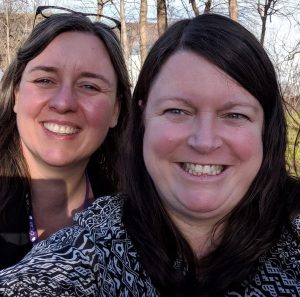Though I was a recipient of the Scholarly Teaching Fellowship from BCcampus, I represented a cohort of instructors from Coast Mountain College who engaged in this action research project together. One of the benefits provided by being a Teaching Fellow was the impetus for us to turn our doing into documenting, reflecting, and sharing. As educators, so often we are engaged in all kinds of doing. Every class is an experiment if we are willing to approach our teaching with a learning spirit. We experiment when we change the seating, alter an introduction to a new unit, shift a class from lecture to team-based learning, and so forth. Sometimes—at least, in my case—it is easy to be engaged in this doing, but much harder to formalize this experimenting into a scholarly inquiry research structure.
Post by Carrie Nolan, Dean, Strategic Initiatives, Coast Mountain College
The second benefit of stepping into scholarly research as a Teaching Fellow was the cohort model that encouraged us, the four recipients, to connect with and support one another (as facilitated by Leva Lee, Manager, Learning + Teaching, and senior fellow Peter Arthur). This cohort model took the form of one-on-one phone conversations, shared meals at conferences, and video chats as a collective. I was inspired and encouraged by the work taking place around the province and appreciated broadening my network with kindred spirits.
Finally, the grant enabled us (and kept us accountable) to share our learnings far and wide. Representative faculty from the yurt cohort were able to attend and share our research at the Festival of Learning, the 2018 Symposium: Scholarly Teaching & Learning in Post-Secondary Education, CICan’s pre-conference in Ontario, and ISSOTL’s annual international conference in Norway! What a treat to travel, present, and learn together, thus furthering the depth of our understanding in our journeys as reflective practitioners.
Going forward, we are hoping to expand our “pebble project” model that we piloted through this fellowship. The pebble project is scholarly inquiry in the form of asking one question or doing one thing differently to create a ripple effect in student learning. What sets the pebble project apart from much scholarly inquiry is the idea of each instructor identifying or enacting their ”pebble” within a community of practice, meaning a committed group of faculty that meets regularly to share insights and efforts to create change. We also look forward to what further learning will come from classes being taught and studied in our teaching lab yurt.
Thanks again to BCcampus for the opportunity to be a Teaching Fellow! And thanks to the 12 Coast Mountain College instructors who stepped out of their comfort zones to teach and learn in our teaching lab yurt: Karen McMurray (Business), Marja Burrows (Social Work), Dave Reinhardt (Automotive), Catharine White (Biology), Matt Beedle (Geosciences), Gord Weary (Geosciences), Dina von Hanh (Women’s Studies), Chris Gee (Social Work), Michael Brandt (Criminology), Seth Downs (Business), Kathryn Fullerton (Early Childhood Care and Education), and Adam Nash (Learning Transformation).

